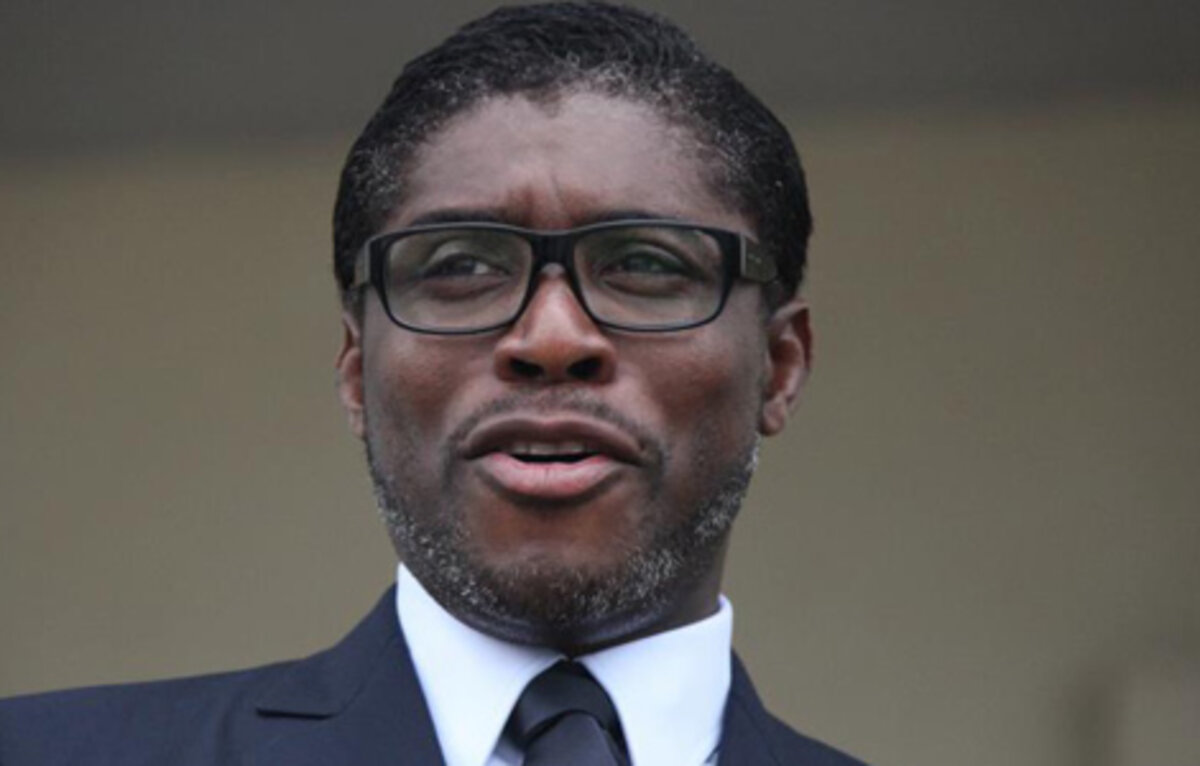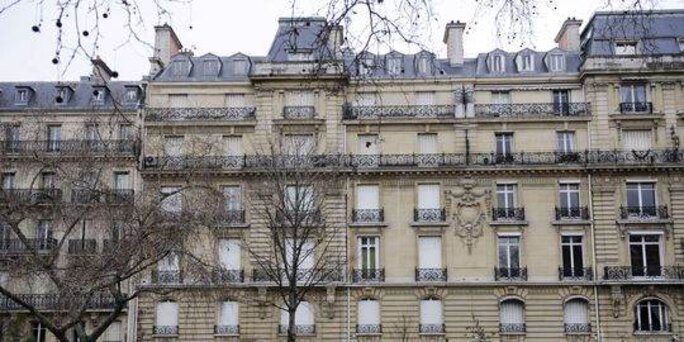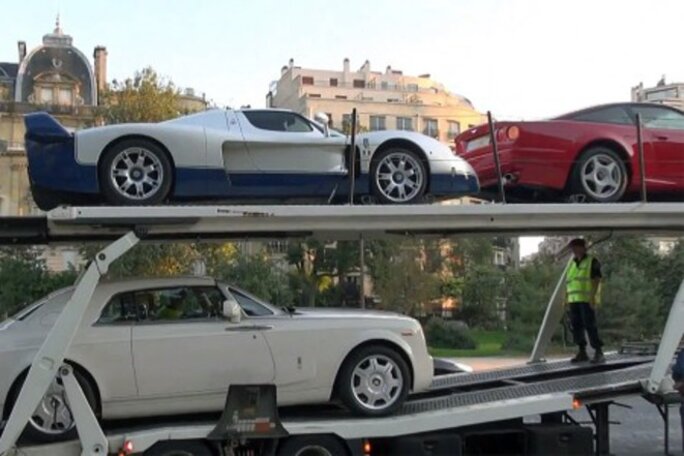A Paris court on Friday handed Equatorial Guinea vice-president Teodoro Nguema Obiang Mangue a three-year suspended prison sentence and the confiscation of his assets in France, estimated to be worth 150 million euros, after magistrates found him guilty of money laundering, abuse of trust and embezzling his country’s public funds.
Obiang Mangue, 48, more commonly known as Teodorin Obiang, was also given a suspended fine of 30 million euros. He was tried in absentia in a landmark case that was prompted by lawsuits filed by NGOs Transparency International France and Sherpa, which have also brought similar action against other African leaders over their alleged embezzlement of their country’s wealth to pay for highly luxurious investments and lifestyles in France.
William Bourdon, lawyer for Transparency International France, on Friday hailed what he called a “historic” ruling that sealed a legal battle lasting ten years. However, Obiang, whose lawyers argued was entitled to diplomatic immunity, has the right to appeal the sentence.

In the case of Obiang, whose country’s population is among the poorest in Africa, his assets in France include a vast Paris mansion close to the Champs-Elysée, prized artworks, a fleet of sports cars, including Rolls Royces, Ferraris and Lamborghinis, and expensive jewellery.
The Paris mansion, at 42, avenue Foch, contains 101 rooms, a discothèque, a spa, and a private hairdressing salon. A police search of the premises found works by Renoir, Degas, Chagall, Matisse, Monet and Toulouse-Lautrec, a stash of fine wines and bathrooms with gold-plated taps. The investigation established startling evidence of Obiang's lavish spending, including purchases totalling 9.5 million euros at Parisian antique dealer Jean Lupu, while a further 11 million euros were spent at the Paris jewellers Dubail Bijouterie.
“The necessity to legally punish the money laundering of illicit profits is the result of an awareness at a European and international level of the danger for the economic and social fabric of the planet,” the Paris judges said in their ruling.
Obiang, 48, the son of Equatorial Guinea’s strongman president Teodoro Obiang Nguema, served as the country’s agriculture and forestry minister between 1997 and 2012 before becoming its vice-president. During his time as minister, when he amassed his assets in France and lived what the Paris magistrates underlined was “a lifestyle that can objectively be described as exceptionally luxurious”, he officially earned 80,000 euros per year.

Along with oil, timber is one of the principal sources of revenue for the African state, where the Obiang family control all political power and major economic activities and where an estimated three quarters of the population live in poverty. The Paris trial heard how, when Obiang was minister, he was personally paid the equivalent of 20 million euros in 2006 by a Malaysian company, Shimmer International, which had been granted a virtual monopoly of Equatorial Guinea’s timber business.
The trial was presented with compelling evidence that Obiang had obtained his vast personal wealth through embezzlement of his country’s public funds, but the prosecution case concerned only his money laundering in France of the proceeds of that corruption. After a recent change in French law, money laundering can be prosecuted independently of proving the corrupt source of the funds involved.
The case brought against Obiang was validated by the Paris appeal court in November 2010, when, after a long legal procedure, magistrates ruled that the French branch of Transparency International was entitled to lodge lawsuits against several African heads of state and members of governments, for alleged money laundering in France. Judicial investigations were subsequently launched into suspected money laundering by Obiang, Congo-Brazzaville's president Denis Sassou Nguesso, and Omar Bongo, the late president of Gabon.
The dilemma of returning confiscated assets
The case against Obiang is the first of these to have been brought to trial.
But the process was initially dogged by the unwillingness of the Paris public prosecutor’s office to pursue the case. “Over the course of several years the Paris public prosecutor’s office at the time considered that the legal proceedings against Teodoro Nguema Obiang Mangue were either not opportune or not possible from a judicial viewpoint,” the three presiding magistrates recorded in their ruling on Friday, detailing the numerous decisions by the public prosecutor’s office to reject the case. The magistrates observed that Obiang may have had grounds to believe he had “protection on the part of France, even impunity”.

Enlargement : Illustration 3

They cited the testimony of a witness to a meeting between former French prime minister Dominique de Villepin, when he was interior minister between 2004 and 2005, and Obiang’s father, Equatorial Guinea President Teodoro Obiang Nguema. “According to the witness, president Obiang on that occasion handed over an attaché case containing one million euros and Dominique de Villepin told him he would be given a meeting with [then French president] Jacques Chirac,” the magistrates noted.
They also highlighted what they described as “the determining role of banks” in the money laundering. “The acts of money laundering would not have been possible without notably the involvement of the Société Générale Bank of Equatorial Guinea,” they wrote, referring to what is a subsidiary of the French bank Société Générale. They also criticised the Bank of France, through which, between April and June 2006, a total of 70 million US dollars was transferred to Obiang without the bank raising any concern.
In explaining their decision to hand Obiang a suspended jail term, the magistrates wrote: “The court considers that […] the principal sentence must essentially be a warning destined as much to the convicted person as to other members of the social group susceptible to be implicated in money laundering acts.”
There remains the complicated question of what will become of Obiang’s confiscated assets. While the magistrates described the decision to confiscate the assets estimated to be worth a total of 150 million euros as an appropriate sentence which also disuaded others because it “deprives convicted people of the use of assets gained from their illicit activities”, the move raises moral issues over whether the assets should become the property of the French state. The magistrates noted that under a 2003 United Nations convention on corruption, the funds embezzled by political leaders or public employees should be returned to the funds of the state concerned.
But since he came to power in a coup d’état in 1979, Equatorial Guinea president Teodoro Obiang Nguema and his family have ruled the country through a strongman regime which allows no reasonable belief that the proceeds of the sale of the confiscated assets would be returned to the wealth of the nation. For that reason, the magistrates advised a reform of the French law concerning confiscation sentences that is “adapted to the restitution of illicit assets”.
Below is the full text of the magistrates' ruling (in French):
-------------------------
- The French version of this report can be found here.
English version by Graham Tearse


